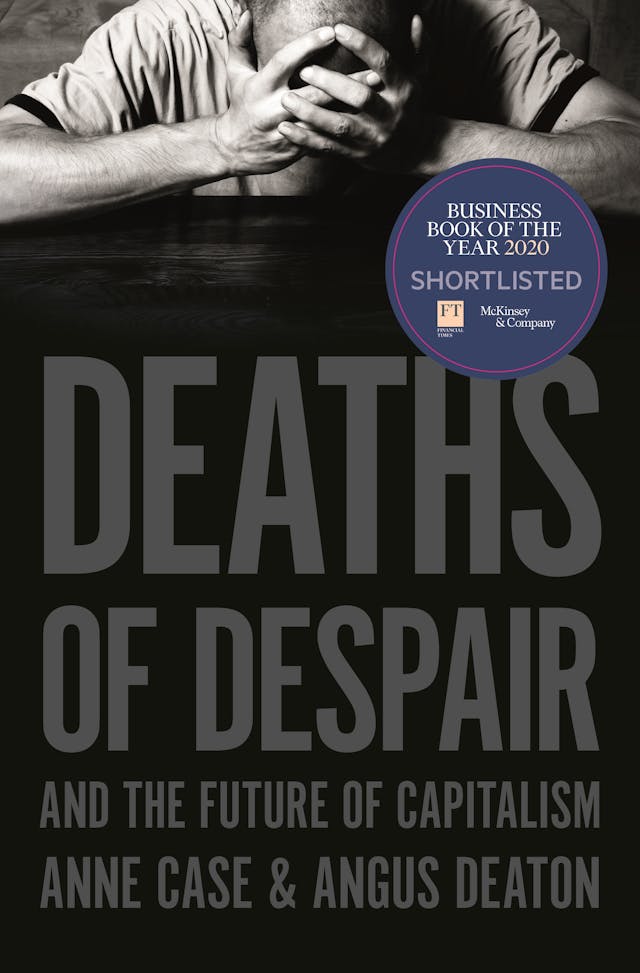Beyond covid crisis there is still another one in US: the opioid crisis. The most relevant book on the topic is the Case-Deaton one.
We are telling the story in the way that we uncovered it, starting with midlife deaths of all kinds. We then focused on the immediate causes, which turned out to be deaths of despair among whites plus a slowdown and reversal in deaths from heart disease, which, until then, had been a main engine of mortality decline. Unfortunately, deaths of despair are not only afflicting middle-aged whites. While the elderly have been largely exempt, there have also been rapid increases in deaths of despair—particularly from overdoses and suicides—among younger whites. For whites between the ages of forty-five and fifty-four, deaths of despair tripled from 1990 to 2017. In 2017, this midlife age-group
had the highest rate of mortality from deaths of despair. But whites in younger age-groups were also doing badly and their deaths rose even more rapidly, accelerating in the last few years.
Drug overdoses are the single largest category of deaths of despair. They are part of a broader epidemic that includes death from alcoholism and suicide, a reflection of the social failures that we have described in this book. Yet the behavior of the pharmaceutical companies caused more deaths than would otherwise have happened, showering gasoline on smoldering despair. Stopping the drug epidemic will not eliminate the root causes of deaths of despair, but it will save many lives and should be an immediate priority. Addiction is extremely hard to treat, even with the cooperation of the addict. There appears to be wide agreement that medication-assisted treatment can be effective, but it is not available to everyone, often because of cost.
Ps. Medicaments i risc de pneumònia
Els analgèsics opiacis causen depressió respiratòria amb la hipoventilació pulmonar resultant;
alguns d’ells (codeïna, morfina, fentanil i metadona) també tenen efectes immunosupressors.
Incrementen el risc de pneumònia i la mortalitat respiratòria en un 40 a 75%.26,27,28
L’any 2018, uns 50 milions de persones als EUA (15% de la població adulta, 25% entre els més
grans de 65 anys) reberen una mitjana de 3,4 prescripcions d’analgèsics opiacis, i 10 milions de
persones reconeixien consum exagerat d’analgèsics de prescripció mèdica.29 A Europa en els
últims anys el consum d’opiacis suaus y forts ha augmentat, sobretot entre la gent gran.30,31
Fentanil i morfina son els opiacis forts més consumits, i més recentment oxicodona. El
tramadol, que és també inhibidor de la recaptació de serotonina, és l’opiaci suau més consumit.
En dos estudis observacionals de publicació recent, el consum de tramadol, comparat amb el
d’AINE, es va associar a una mortalitat 1,6 a 2,6 vegades més alta,32,33 sobretot en pacients
amb infecció i en pacients amb malaltia respiratòria.
